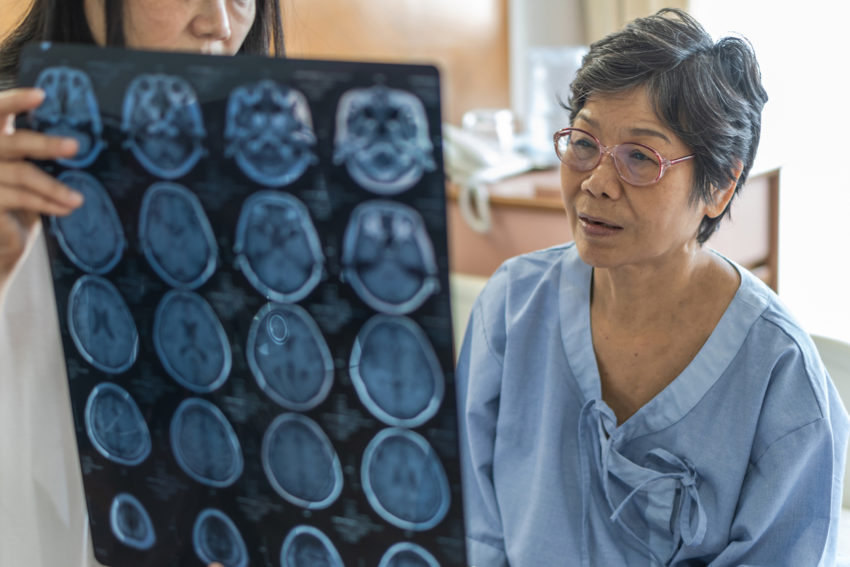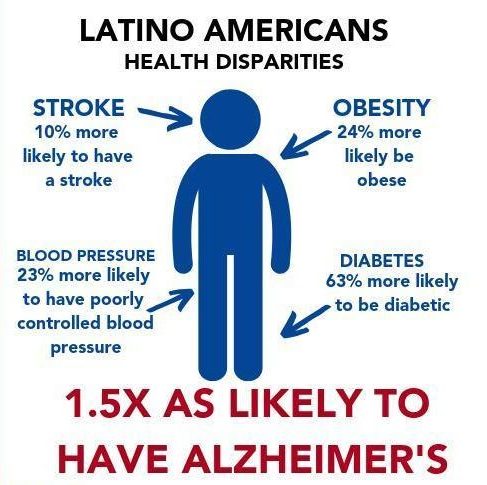
Share On Social!
Across the board, Latinos are underrepresented in clinical research.
Without adequate Latino and minority representation in clinical trials, researchers cannot find differential effects among groups nor advance public health and medicine.
To address this, researchers across the country, like those at the Glenn Biggs Institute for Alzheimer’s and Neurodegenerative Diseases at UT Health San Antonio, are creating educational interventions to recruit certain racial/ethnic groups in diseases like Alzheimer’s that are on the rise among minorities.
“Studies should represent the demographics of the country,” Dr. Jonca Bull, an assistant commissioner on minority health at the Food and Drug Administration, said in a recent statement. “We need to close that gap so we can better understand how a particular drug or therapy works in different communities.”
Alzheimer’s Disease Among Latinos and Clinical Trials Targeting Them
The Biggs Institute is working to enroll 200 Latino participants in its new trial, “MarkVCID Study: Biomarkers for Vascular Contributions to Cognitive Impairment and Dementia.”
This study aims to identify early disease indicators that can help us distinguish future healthy aging from dementia among Latinos. It also will identify the most important biomarkers Mexican-American adults in South Texas.

Participants can earn up to $300 for participating.
To participate in this study, you must be:
- Age 55 or older
- Self-identified as a Mexican-American
- Currently living in the San Antonio area
Learn more about the MarkVCID Study here.
New treatment for cancer and dementia that consider individual variability in genes, environment, and lifestyle is essential for diverse groups.
These treatments require testing in clinical trials.
Yet, even though Latinos represent 18.5% of the U.S. population, they only account for 10% of participants in clinical trials run by the National Cancer Institute and 4% of drug trials run by the FDA.
This becomes problematic for a rising issue like Alzheimer’s among Latinos.
Latinos Are Facing a Surge in Alzheimer’s Cases
Studies show U.S. Latinos are 1.5 times more likely to develop Alzheimer’s than their White peers.
Latinos living with Alzheimer’s is projected to grow from 430,000 in 2014 to 3.2 million in 2060. That is more than an alarming seven-fold increase.
However, researchers don’t full understand the reasons for these disparities.
In recent years, genetic analyses of Alzheimer’s disease have identified common variants through genome-wide association studies. These reports have identified several novel susceptibility genes that implement specific pathways in the condition.
“There are various barriers to getting involved in research, including health literacy, or what people actually know about Alzheimer’s disease. In the Hispanic/Latino communities, it is often thought of as just a part of aging,” said Luis D. Medina, assistant professor of psychology to press, who believes the solution begins with education. 
Why It’s Critical to Recruit Latinos into Clinical Trials for Alzheimer’s and Other Issues
Clinical trial studies evaluate the effects of an experimental test or treatment. They allow researchers to determine the safety and effectiveness of treatments and whether to make them available to the public.
Hence, it is essential to have diversity among trial participants.
If fewer Latinos participate in clinical trials on Alzheimer’s and other health conditions, researchers have less data on how a drug works in that population.
Latino participation is critical in preventing, diagnosing, and curing diseases and illnesses among the Latino population. When Latinos participate in a clinical trial, they contribute to research that could bring new treatments one step closer to reaching Latino patients across the nation.
Latinos participating in a clinical trial may give them access to experimental, cutting-edge treatment options. Plus, they will have access to a medical team that carefully monitors their disease and overall Latino health.
“We want to find out why Latinos are at a higher risk, we want to find out why they’re presenting symptoms seven years earlier,” Jason Resendez, Chief of Staff at Us Against Alzheimer’s, said in a statement to NIH. “All of Us” program.
By The Numbers
142
Percent
Expected rise in Latino cancer cases in coming years




I know this is a two year old article, but Bias is another reason why some Hispanic people think about or attempt suicide. I’m actually part Filipino, German and English and I ended up looking stereotypically Hispanic and my surname is Spanish due to my Filipino side since the Spanish colonized the Philippines. I’m a woman though and I’ve thought about it for a number of reasons involving my health from a rare disorder that caused learning issues and also I have obvious cancer symptoms Ive tried getting help with. I’ve also been treated poorly and sometimes in very scary situations because of obvious Bias and Prejudice due to my appearance. I’m just saying Bias against people who are Hispanic and “look Hispanic” is a real thing. I apologize if it was in this article but I didn’t notice it, But I do apologize if its in there. I just think it needs to be addressed more. Thank You